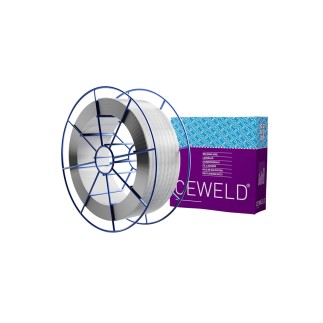316L-Si/SKR-Si
CEWELD® 316LSi offre une bonne résistance générale à la corrosion, en particulier à la corrosion dans les environnements acides et chlorés. L'alliage a une faible teneur en carbone, ce qui le rend particulièrement recommandé lorsqu'il y a un risque de corrosion intergranulaire. La teneur plus élevée en silicium améliore les propriétés de soudage telles que le mouillage et permet d'obtenir un joint brillant.
ISO 15608: 8.1 Austenitic ≤ 19 % Cr , TÜV 1000: Gr. 21-30,
1.4583, 1.4435, 1.4436, 1.4404, 1.4406, 1.4408, 1.4401, 1.4571, 1.4580, 1.4406, 1.4521, 1.4301, 1.4306, 1.4430
X102CrNiMoNb 18 12, X2CrNiMo 18 14 3 (TP), X4CrNiMo 17 13 3, X2CrNiMo 17 12 2 (TP), X 5CrNiMo 19 11 2, X4CrNiMo 17 12 2 (TP), X6CrNiMo 17 12 2, X6CrNiMoNb 17 12 3, X2CrNiMoN 17 12 3 (TP), X2CrMoTi18-2
316Cb, 316L, 316L, 316LN, 316H, 316, 316Ti, 316Cb, 316LN, 444
S31640, S31603, S31653, S31600, S31630, S44400






| Heat Treatment |
RP0,2 (MPa) |
Rm (MPa) |
A5 (%) |
Impact Energy (J) ISO-V | Hardness | |
|---|---|---|---|---|---|---|
| RT | -196°C | |||||
| As Welded | 418 | 550 | 37 | 110 | 38 | HRc |
